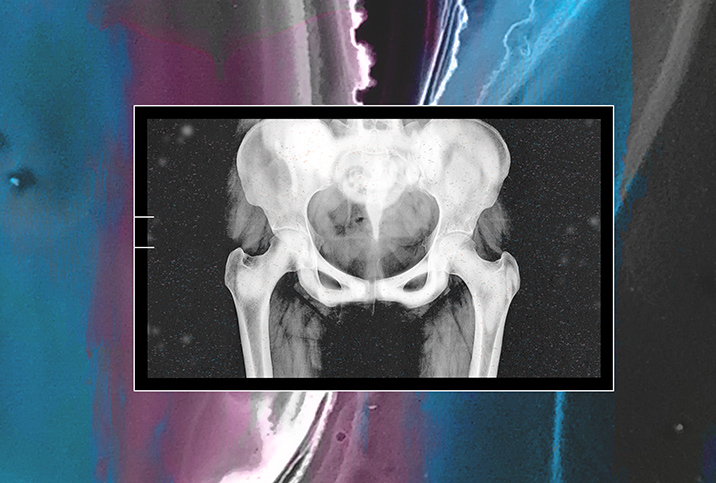How Does Prostate Cancer Treatment Affect Sex for Partners?

Overcoming cancer is one part of the care journey for patients. Even when cancer is in remission, the physical effects of therapies continue to impact a patient's quality of life—and, likely, their partner's. For example, hormonal therapy, a standard prostate cancer treatment, can cause sexual dysfunction, according to the National Cancer Institute.
As reported by a 2022 study in the Journal of Sexual Medicine, prostate cancer is known as the "couple's disease" because it can impact the patient and their partner(s). Despite what's understood about the disease, there can be a lack of collaboration between the female partner, the cancer survivor and their healthcare provider in addressing the couple's sexual health needs.
A recent study indicated a significant demand to address the sexual health needs of prostate cancer survivors and their female partners.
How does prostate cancer treatment affect sexual health?
According to a 2023 review in Nature Reviews Urology, the sexual health side effects of prostate cancer treatment include the following:
- Issues with receptive anal intercourse
- Erectile dysfunction (ED)
- Climacturia, or orgasm-associated incontinence
- Anejaculation (absence of ejaculate during sexual activity)
- Decreased penile length
- Changes in orgasm
A 2021 systematic review in Health and Social Care in the Community looked at female partners of prostate cancer survivors. The findings suggested treatment negatively impacted their sexual relationships. Some female partners found it difficult to adjust to their new sex life post-treatment. They felt the introduction of sexual aids, such as toys, was unsuccessful and unnatural.
There's an unmet need for helping couples find a comfortable sex life after prostate cancer treatment. Female partners face psychosocial distress as they try to adjust to a "new normal" when their prostate cancer survivor's sexual dysfunctions aren't being addressed by their healthcare team.
New research
A 2023 study in the Journal of Urology examined how female partners are impacted by prostate cancer treatment. The study included 12 participants whose ages ranged from 53 to 81. Every study participant had a partner whose initial prostate cancer diagnosis occurred 11 months to 20 years ago.
The researchers interviewed the participants over the phone to discuss their sexual health challenges. The most common themes from the interviews included the following:
- The relationship between recovery and sexual dysfunction
- Coping and adjusting to sexual dysfunction
- Difficulties talking about sexual dysfunction with their partners during intimate moments
- A lack of physician-led sexual health counseling and support
- How talking with peers and having resources can address unmet sexual health needs
The study stated female partners "experience prostate cancer-related sexual dysfunction as a couple's disease."
"Female partners report a lack of sexual health counseling and support, resulting in unmet informational needs," said Stacy Loeb, M.D., a urologic oncologist at NYU Langone Health in New York City and the study's lead author.
The most surprising revelation of this study, according to Loeb, was how many female partners expressed challenges with communication, including feeling invisible and ignored in the healthcare system. Difficulty discussing sexual problems with their partner was also a concern, Loeb and her team discovered.
Partner involvement in the sexual recovery process
The study's results suggest a significant need for better communication between female partners and their partner's healthcare team to access sexual healthcare and resources.
"We should seek to include partners in the sexual recovery process as part of routine survivorship care," explained Natasha Gupta, M.D., a urologist at NYU Langone Health and one of the study's authors.
This study focuses on prostate cancer survivors, but Loeb said the findings could be applied to improving the quality of life for partners of patients living with different cancers or other chronic illnesses.
"While healthcare providers and researchers often focus on the patients themselves, many health conditions also have a substantial impact on family members," she said.
How oncologists approach sexual health with survivors and their partners
So how can healthcare professionals aid patients and their partners' sexual health needs?
"[The study] touches upon an often ignored component of the prostate cancer patient experience," said Francisco Gelpi, M.D., a urologic oncologist at Houston Metro Urology.
In his practice, Gelpi encountered prostate cancer survivors who felt selfish for thinking about sex when they should be grateful to be alive. However, Gelpi disagrees with this mindset and attempts to have both partners present and involved during these conversations.
"The diagnosis and subsequent treatment of prostate cancer is a process," Gelpi said. "Every step of the process, I attempt to clarify and provide realistic expectations for the couple."
For patients who undergo surgery and face ED, for example, Gelpi suggests they try oral medications, injections, vacuum devices, penile prostheses and other options.
Gelpi counsels the couple by discussing the potential impacts on their sex life and encourages them to explore aspects of their sexuality that have probably gone under-appreciated.
Prostate cancer treatment affects the survivor and their loved ones. Female partners can face sexual and psychosocial impacts due to their partner's post-treatment sexual dysfunction. The survivor's oncologist and other healthcare providers must ensure their partner is involved in the sexual recovery process and that the couple's sexual health needs are addressed.
The initial focus of prostate cancer treatment is usually zeroed in on what Gelpi called oncological control.
"However, the correct approach should consider looking farther out," he added. "We want to cure patients so they can resume what otherwise would have been a normal life. And preferably we want to preserve their urinary function and sexual quality of life."


















